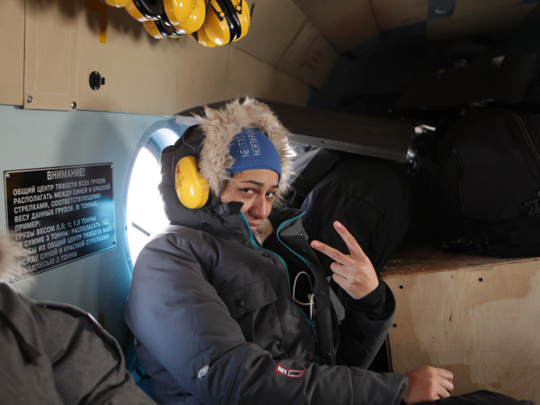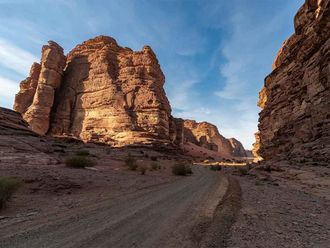
Jeddah: Mariam Fardous was leading a fairly normal life having grown up in Makkah, and later studying medicine at King Abdul Aziz University in Jeddah.
While in Jeddah, she was looking for ways to let off steam to relieve her from the stress of her demanding schedule.
The 32-year-old Saudi national decided to try diving because she grew up listening to her late father’s fascinating stories about the Red Sea.
At the time Fardous took up the sport 10 years ago, diving was an unconventional activity—which only motivated her to pursue it more.
While today there are many diving schools in Jeddah given the city’s proximity to the Red Sea, and also many Arab and Saudi women divers there were a few diving schools in Jeddah that accepted women.
However, when she started taking classes she instantly fell in love.
“When I’m diving, I am in a happy space, and I instantly feel rejuvenated. The sea is a beautiful place to take a break,” Fardous told Gulf News.
By the time she finished her medical internship, she had earned a master scuba diver certification from the Blue Reef Divers in Jeddah—using her weekends to train.
She specialised in open water, advance and rescue level dives, along with peak performance buoyancy and night dives.
Despite her obsession with diving, the ambitious Fardous went on to obtain two masters degrees in pediatrics and epidemiology from London and Riyadh, respectively.
But her demanding work schedule did not prevent her from furthering her diving career.
Any spare time she had went to training. She even went to Russia to learn specialised diving techniques like ice and dry-suit diving.
“My mother has always been a great source of motivation. She has always guided me to think out of the box, taught me to believe in myself and follow my dreams,” said Fardous.
One day, Fardous and her friends were discussing the very challenging North Pole dive—only two women in the world have accomplished this feat.
“The idea to dive at the North Pole seemed not only unique and interesting, but also a challenge that would define me. I wanted to be the first Arab woman to do so,” she said.
She immediately began to prepare, starting with months of intensive training for the 40-day expedition. Having been unable to secure sponsors, she self-financed her expedition.
On March 28, 2016 she embarked on her trip.
To reach the base camp of Barneo in the North Pole, Fardous had to travel to Moscow and then Karelia in north west Russia where she stayed for 3 weeks to get acclimatised to the extreme sub-zero temperatures.
She flew to Moscow and then to Karelia, where she stayed for 3 weeks to get acclimatised to extreme cold temperatures.
On April 20, 2016 Fardous was dropped off by a helicopter to Barneo where temperatures average at -25C.
As soon as Fardous deplaned, she prostrated in gratitude.
“I was overwhelmed and extremely proud of being part of a historic expedition for my country,” she said.
At the North Pole, the dive took place under the frozen Arctic Ocean.
Prior to diving, Fardous, with the help of her diving team, broke a few feet of solid ice to make a hole in the frozen ocean — the only entry and exit point for divers.
Under the water, temperature averaged at -6C.
Fardous dove twice, descending approximately 25 feet and staying underwater for 25 minutes each time.
Recounting her experience of the first dive, Fardous said, “I went through a range of emotions. As I went deeper I felt light like a feather.”
The only time Fardous felt terrified on the entire expedition was when she dove for the second time a few days later.
“I had to do it because I had made up mind. But I felt very scared and very weak because I had lost strength due to lack of nutritious food.”
By the end of the expedition Fardous had lost 10kgs, having to survive only on soup powder, chocolate bars and nuts.
Currently Fardous is training to dive at the South Pole early next year.
“I am an adventurer and a solo traveler. I dive whenever and wherever I get an opportunity.”











